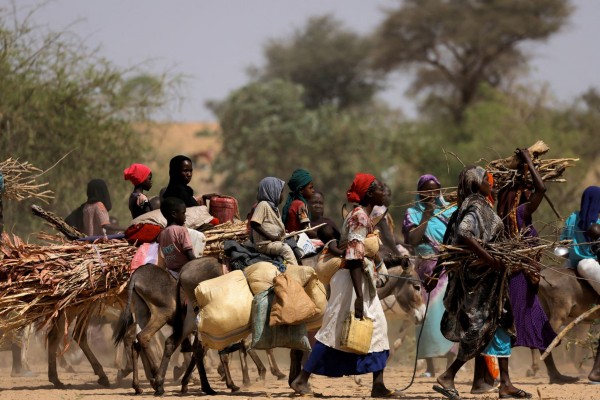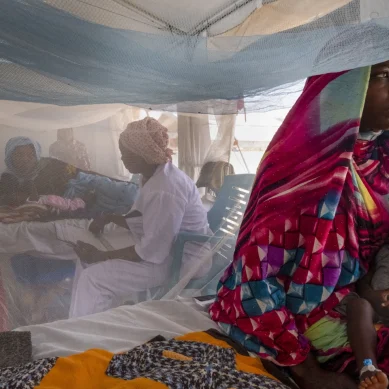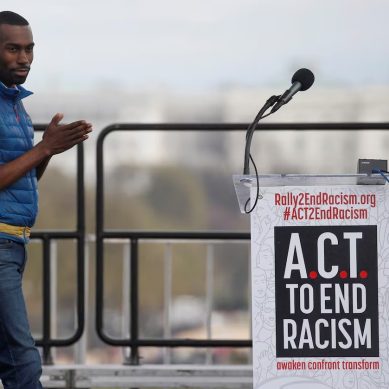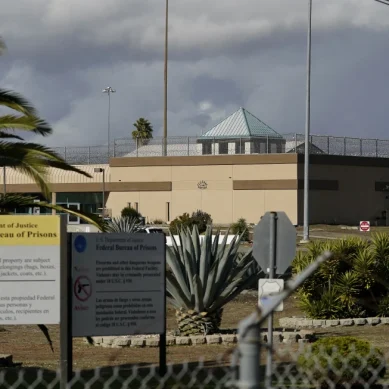
Air strikes and artillery pounded Khartoum on Friday after Sudan’s warring army and Rapid Support Forces paramilitary failed to agree a ceasefire despite committing to protect civilians and allow humanitarian access.
A so-called declaration of principles was signed in Saudi Arabia late on Thursday after nearly a week of talks between the two factions, which had shared power before falling out over a transition to civilian rule.
RSF adviser Moussa Khadam told Sky News Arabia the group would abide by the principles agreed to and aimed to reach a complete ceasefire. But there was no let-up in violence and the army has not commented on the agreement.
Since clashing suddenly on April 15, the rival military factions have shown little sign they are ready to end deadly fighting that has uprooted hundreds of thousands of people and could pitch Sudan into a full-blown civil war.
The conflict has paralysed Sudan’s economy and strangled its trade, aggravating a ballooning humanitarian crisis with the UN saying on Friday that 200,000 people have now fled into neighbouring countries.
However, UN Sudan envoy Volker Perthes said he expected ceasefire talks to start again on Friday or Saturday and that while previous truces broke down because both sides thought they could win, neither now believes that victory would be quick.
His upbeat assessment contrasted with disappointment among many in the capital.
“We were expecting that the agreement would calm down the war, but we woke up to artillery fire and airstrikes,” said Mohamed Abdallah, 39, living in Khartoum, as blasts were also heard in neighbouring Bahri.
In Darfur in the west, fighting between local militias that killed 450 people last month flared again in the city of Geneina as one group attacked another, rattling neighbourhoods with gunfire and artillery after two weeks of comparative calm.
In other parts of Darfur, where a war has simmered since 2003 killing 300,000 people and displacing 2.5 million, locally arranged ceasefires between the army and RSF appeared to hold.
In Port Sudan on the Red Sea, Al-Taj al-Tayyib said he hoped Thursday’s agreement represented a start towards peace. “Our country doesn’t need all these crises. I swear this country doesn’t need that,” he said.
Thursday’s deal, the product of Saudi and US-brokered talks in Jeddah, includes commitments to allowing safe passage for civilians, medics, and humanitarian relief, and to minimize harm to civilians and public facilities.
US officials said negotiations for a ceasefire would follow and Saudi Arabia called the agreement “a first step”. Mediators had pushed for the limited agreement to reduce tension over the wider ceasefire, one told Reuters.
However, a senior US State Department official said the two sides “are quite far apart” and he did not expect them to fully comply with the agreement. The two sides agreed to quit private homes and other property but a family in Bahri said RSF fighters had tried to take over their house on Friday morning.
Khartoum residents have frequently accused the paramilitary of taking over houses and hospitals as part of a tactic to embed in districts through the city as it fights an army that can call on air power. The RSF has denied the claim, accusing the army and other armed groups of invading property.
“The parties must convey clear and unequivocal instructions to lower ranks” to enforce Thursday’s agreement said the United Nations, African Union and regional organisation IGAD.
However, Cameron Hudson of the Centre for Strategic and International Studies said he doubted the RSF had enough control over its fighters to do so. Previous ceasefire agreements have been repeatedly violated, leaving civilians to navigate a terrifying landscape of chaos and bombardment with failing power and water, little food and a collapsing health system.
Many UN and other aid agencies have suspended aid to Sudan and in particular Khartoum, awaiting guarantees their stores and staff will be safe. The World Health Organization has said at least 600 people have been killed and more than 5,000 injured in the fighting, but that real numbers are likely much higher.
In Darfur, local activist Gouja said on Thursday’s deal could help solidify locally arranged ceasefires. “But if there’s no mechanism to monitor, then it won’t be an improvement,” he added.
Little humanitarian aid has reached Darfur’s main cities of Nyala and al-Fasher, Gouja said, with salaries unpaid for two months. In Geneina, infrastructure has been destroyed and the health system totally disabled, as tens of thousands of inhabitants have fled into nearby Chad.
More than 700,000 Sudanese have been internally displaced, according to the UN.
- A Reuters report











